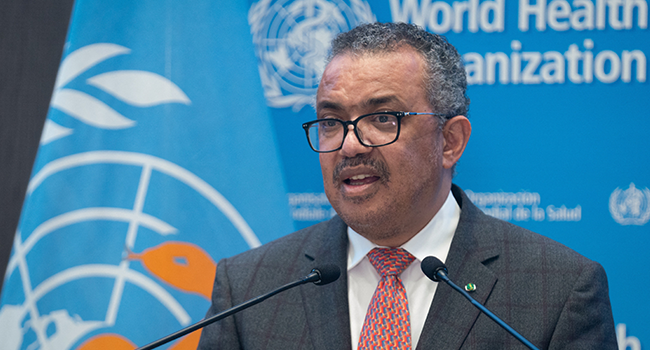
The proposed Infectious Diseases Bill co-sponsored by the Speaker of the House of Representatives, Femi Gbajabiamila, and two of his colleagues has been described as superfluous, illegal and unconstitutional.
Human rights lawyer and Senior Advocate of Nigeria, Mr Femi Falana, told Channels Television on Wednesday that the efforts to replace the Quarantine Act was a waste of time as the Nigeria Centre for Disease Control and Prevention Act of 2018 has taken care of what the lawmakers are trying to achieve.
Mr Falana, who spoke about the controversial bill during an appearance, via Skype, on Politics Today, said, “It is pertinent to inform Nigerians that in November 2018, a law was enacted in this country – the Nigeria Centre for Disease Control Act, NCDC Act, which has taken care of infectious diseases in the country.
“So, it is not correct, in fact, it is misleading on the part of the House of Representatives to say that it is amending the 1926 Quarantine Act because there is already a development between 1926 and now. You had the 2018 Act which has taken care of the entire provisions of the new bill.
“The new bill, as far as the law is concerned, is superfluous. Its provisions are largely illegal and unconstitutional.”
A close look at some sections of the said Act shows that the legislation empowers the NCDC to prevent, detect, monitor and control of national and international public health importance.
The law also empowers the NCDC to develop and coordinate capabilities, measures and activities to control outbreaks and mitigate the health impact of public health disasters.
As Nigeria battles the raging COVID-19 pandemic, several measures have been implemented to halt the spread of the virus which has infected 2,950 people in the country and claimed 98 lives.
The introduction of the infectious disease bill has, however, proved controversial with many calling for it to be dumped.
READ ALSO: Infectious Diseases Bill Conceived In Public Interest – Gbajabiamila
On Tuesday, in reaction to the controversy surrounding the bill, Mr Gbajabiamila defended it, saying it was conceived in public interest.
Gbajabiamila while addressing his colleagues at the resumption of plenary noted that since the introduction of the Bill a week ago, it drew a barrage of criticisms against it, with allegations of sinister motives.
“None of these allegations are true. Unfortunately, we now live in a time when conspiracy theories have gained such currency that genuine endeavours in the public interest can quickly become mischaracterised and misconstrued to raise the spectre of sinister intent and ominous possibility,” he said.
“This House of Representatives will never take any action that purposes to bring harm to any Nigerian here at home or abroad. As we have thus far shown by our conduct, the resolutions and actions we take in this 9th House of Representatives will always be in the best interests of the Nigerian people who elected us, and no one else.
“In the recent uproar, certain fundamental truths have been lost and are worth remembering. Our current framework for the prevention and management of infectious diseases is obsolete and no longer fit for purpose.
“The current law severely constrains the ability of the Federal Government of Nigeria and the Nigeria Centre for Disease Control (NCDC) to take proactive action to prevent the entry into Nigeria of infectious diseases and the management of public health emergencies when they occur,” he said.




